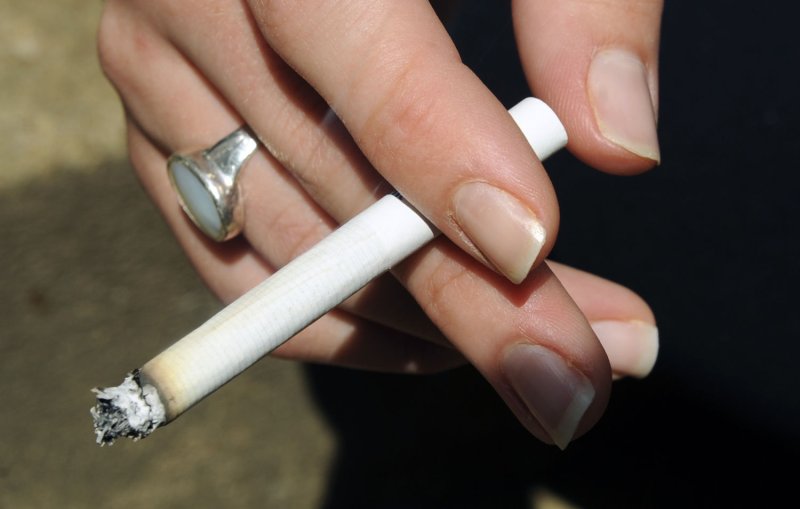BERKELEY, Calif., Nov. 27 (UPI) -- U.S. researchers say their findings on child secondhand smoke exposure in a car support moves to restrict exposure to tobacco use in automobiles.
Dr. Amanda L. Northcross of the School of Public Health at the University of California Berkeley and colleagues said the levels of harmful pollutants exceeded those found in restaurants, bars and casinos.
"Children are more vulnerable than adults, and their exposures to tobacco smoke in a vehicle are completely controlled by the adults with whom they share the vehicle," the study authors wrote. "Although regulations have been enacted to protect non-smokers, including children in many public venues, secondhand smoke exposures to children in vehicles are permitted in 44 of 50 U.S. states, and in most countries worldwide."
The findings were based on 22 assessments of the air quality inside a stationary vehicle after three cigarettes had been smoked over the course of an hour, the researchers said. Exposure to polycyclic aromatic hydrocarbons, in particular, has been linked to immune system disturbances, wheeze, IQ changes and allergic sensitization, the study authors said.
The study, published in the journal Tobacco Control, found pollutant levels -- particulate matter, polycyclic aromatic hydrocarbons, carbon monoxide and nicotine -- inside the car with the front windows completely down and again with the windows open about 4 inches were three times as high as those measured outside of the vehicle.
The National Cancer Institute said secondhand smoke contains at least 69 chemicals known to cause cancer, causes lung cancer in non-smokers, was associated with heart disease in adults and sudden infant death syndrome, ear infections and asthma in children.
"There is no safe level of exposure to secondhand smoke," the NCI said on its website.















